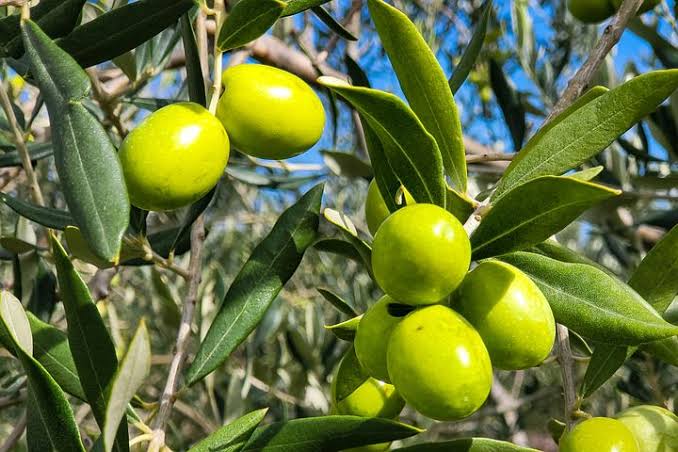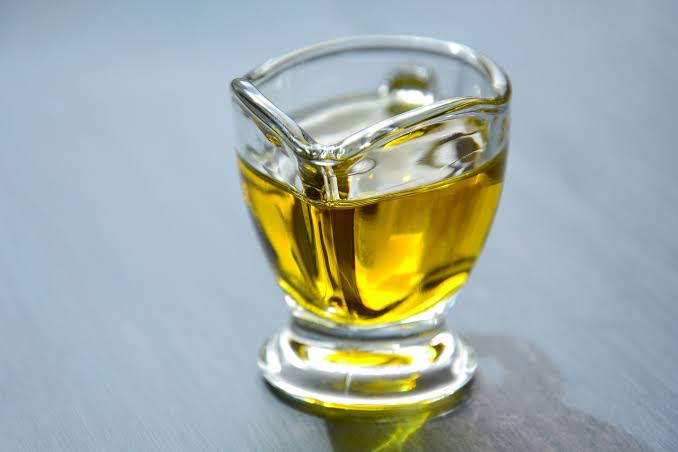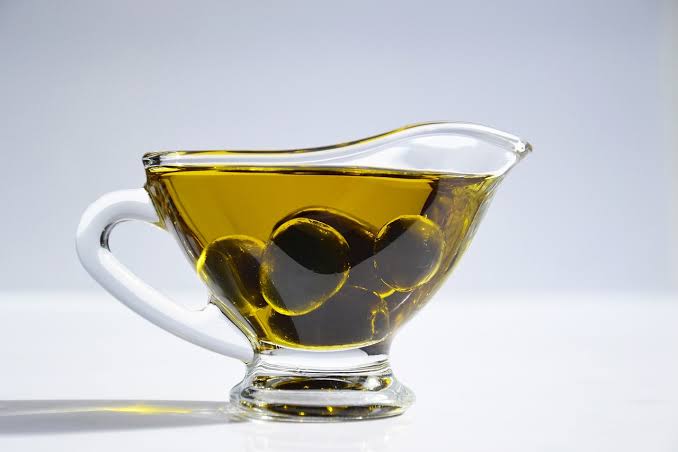Edible olive oil has long been cherished for its rich flavor, versatility in cooking, and numerous health benefits. This ancient ingredient has been a staple in Mediterranean cuisine for centuries and has gained popularity worldwide. In this article, we will delve into the fascinating world of edible olive oil, uncovering its origins, production process, culinary applications, and the remarkable health advantages it offers.
Table of contents

1. The Origins of Edible Olive Oil
1.1 Ancient Roots: Tracing the History of Olive Oil
Olive oil holds a significant place in human history, dating back thousands of years. Its origins can be traced to ancient civilizations in the Mediterranean region, where olive trees thrived. The cultivation of olive trees and the extraction of oil were practiced by civilizations such as the Greeks, Egyptians, and Romans, who recognized the value of this precious liquid.
1.2 Mediterranean Dominance: Olive Oil Production and Consumption
The Mediterranean region remains the leading producer and consumer of olive oil. Countries like Greece, Italy, Spain, and Tunisia have a long-standing tradition of olive oil production. The ideal climate and soil conditions in these regions contribute to the growth of high-quality olives, resulting in exceptional oils.
1.3 Global Expansion: Olive Oil’s Rising Popularity
In recent decades, the popularity of olive oil has spread beyond its traditional Mediterranean boundaries. Consumers worldwide have become more conscious of healthy eating habits and have embraced the Mediterranean diet, in which olive oil plays a vital role. This growing demand has led to increased olive oil production in countries outside the Mediterranean, such as the United States, Australia, and South Africa.
2. The Production Process of Edible Olive Oil
2.1 Cultivation of Olive Trees
Olive trees require a combination of specific climate conditions, including mild winters and hot, dry summers. They thrive in areas with well-drained soil and ample sunlight. The cultivation of olive trees involves careful pruning, pest control, and irrigation to ensure optimal growth and fruit production.
2.2 Harvesting and Extraction Methods
Olives are harvested when they reach the ideal stage of ripeness, which can vary depending on the desired oil characteristics. Traditional methods involve handpicking the olives, while modern techniques employ mechanical harvesters. Once harvested, the olives are processed to extract the oil. The most common method is mechanical pressing, which involves crushing the olives and separating the oil from the pulp and water.
2.3 Varieties and Grades of Olive Oil
Different olive varieties and production methods result in a range of olive oils with distinct flavors and characteristics. The highest quality olive oil is Extra Virgin Olive Oil (EVOO), obtained through cold pressing without the use of heat or chemicals. Other grades include Virgin Olive Oil, Pure Olive Oil, and Olive Pomace Oil, each with varying levels of refinement and flavor.
3. Exploring Culinary Applications
3.1 Extra Virgin Olive Oil: The Queen of Flavor
Extra Virgin Olive Oil is renowned for its exceptional taste and aroma. It is best used in its raw form, drizzled over salads, roasted vegetables, or as a finishing touch to dishes. Its fruity and peppery notes add depth and complexity to culinary creations.
3.2 Cooking with Olive Oil: From Sauteing to Frying
Olive oil’s high smoke point makes it suitable for various cooking methods, including sautéing, stir-frying, and shallow frying. Its flavor-enhancing properties and ability to withstand higher temperatures make it a healthier alternative to other cooking oils.
3.3 Dressings and Marinades: Enhancing Flavor Profiles
Olive oil forms the foundation of countless salad dressings and marinades. Its smooth texture and natural emulsifying properties help bind flavors togetherwhile imparting a delightful taste. Whether used alone or combined with vinegar, herbs, and spices, olive oil adds a touch of richness and complexity to dressings and marinades.
3.4 Baking with Olive Oil: Healthier and Moist Delights
Olive oil can be a healthier substitute for butter or vegetable oil in baking. It adds moisture and richness to cakes, bread, and pastries while contributing to a lighter and more heart-healthy final product. Olive oil-based desserts, such as olive oil cakes and cookies, have gained popularity for their unique flavors and textures.
3.5 Infused Olive Oils: Expanding Taste Horizons
Infused olive oils offer a world of culinary possibilities. By infusing olive oil with herbs, spices, or even fruits, you can create customized flavor profiles to complement various dishes. Infused olive oils can be used as dipping sauces, drizzled over dishes, or incorporated into marinades and dressings.
4. Health Benefits of Edible Olive Oil
4.1 Heart-Healthy Properties: Reducing Cardiovascular Risks
Numerous studies have shown that the consumption of olive oil, particularly extra virgin olive oil, can have significant cardiovascular benefits. Its high content of monounsaturated fats, specifically oleic acid, helps lower bad cholesterol levels and reduce the risk of heart disease. The presence of antioxidants, such as polyphenols, further contributes to its cardioprotective effects.
4.2 Antioxidant Richness: Combating Oxidative Stress
Olive oil is a rich source of antioxidants, which help combat oxidative stress and reduce inflammation in the body. Polyphenols found in olive oil have been linked to a lower risk of chronic diseases, such as cancer and neurodegenerative disorders.
4.3 Anti-inflammatory Effects: Promoting Overall Well-being
The anti-inflammatory properties of olive oil can have a positive impact on overall health. Chronic inflammation is a common underlying factor in various diseases, and the consumption of olive oil may help mitigate this inflammation, leading to improved health outcomes.
4.4 Promoting Digestive Health: Olive Oil’s Digestive Benefits

Olive oil has been known for its digestive benefits for centuries. It aids in the absorption of nutrients, helps prevent constipation, and supports a healthy digestive system. Additionally, the presence of polyphenols in olive oil may have a positive impact on gut microbiota, promoting a balanced and healthy gut environment.
4.5 Brain Health and Cognitive Function: The Role of Olive Oil
Emerging research suggests that olive oil may have a protective effect on brain health and cognitive function. The antioxidants and anti-inflammatory compounds found in olive oil may help reduce the risk of age-related cognitive decline and neurodegenerative diseases, such as Alzheimer’s.
5. Olive Oil Quality and Storage
5.1 The Importance of Quality Standards
To ensure the authenticity and quality of olive oil, it is essential to look for reputable brands and certifications. Quality labels, such as the European Union’s Protected Designation of Origin (PDO) or the International Olive Council (IOC) seal, indicate adherence to strict production standards and guarantee the origin and quality of the oil.
5.2 Proper Storage Techniques: Maximizing Freshness and Flavor
To preserve the quality and flavor of olive oil, it should be stored properly. It is best stored in a cool, dark place, away from direct sunlight and heat. Exposure to light, air, and heat can lead to oxidation and degradation of the oil, diminishing its taste and nutritional value.
6. Debunking Common Myths
6.1 Myth: Olive Oil Should Not Be Heated
Contrary to popular belief, olive oil is suitable for cooking at moderate temperatures. Its high smoke point makes it ideal for sautéing, stir-frying,and even deep-frying. However, it is important not to exceed the smoke point to avoid the breakdown of the oil’s beneficial compounds.
6.2 Myth: All Olive Oils Are Created Equal
Not all olive oils are of the same quality. Extra virgin olive oil, obtained through mechanical pressing and without any chemical processing, is the highest quality and most flavorful option. Other grades, such as virgin olive oil and pure olive oil, undergo varying degrees of processing and refinement, resulting in different flavors and characteristics.
6.3 Myth: Olive Oil Causes Weight Gain
While olive oil is calorie-dense, it can still be part of a healthy diet. When consumed in moderation and as a replacement for less healthy fats, olive oil can contribute to weight management and overall health. Its monounsaturated fats and satiating properties can help promote feelings of fullness and reduce the risk of overeating.
7. Incorporating Olive Oil into a Healthy Lifestyle
7.1 Everyday Uses: Simple Ways to Include Olive Oil in Your Diet
Incorporating olive oil into your daily diet is easy and enjoyable. Use it as a salad dressing, drizzle it over cooked vegetables, or simply dip bread in it. Experiment with different flavors by infusing olive oil with herbs or spices.
7.2 Mediterranean Diet: The Olive Oil Connection
The Mediterranean diet, with its emphasis on whole grains, fresh fruits and vegetables, lean proteins, and olive oil, has been associated with numerous health benefits. By following this balanced and nutritious eating pattern, you can enjoy the advantages of olive oil as part of a holistic approach to well-being.
7.3 Alternative Uses: Beauty and Beyond
Beyond the kitchen, olive oil has a range of uses in beauty and skincare routines. It can be used as a natural moisturizer, hair conditioner, and even as a makeup remover. Its nourishing properties make it a versatile addition to your daily self-care routine.
7. Conclusion
Edible olive oil is a true culinary treasure, offering a harmonious blend of flavor, versatility, and health benefits. From its ancient origins to its global expansion, this remarkable oil has cemented its place in kitchens around the world. With its numerous culinary applications and extensive health advantages, it’s no wonder that olive oil remains a staple in many households. So, next time you reach for your cooking oil, consider the wonders of edible olive oil and the difference it can make in your life. Incorporate this golden elixir into your culinary creations and embrace the vibrant flavors and health benefits it offers.



 For all latest articles, follow on Google News
For all latest articles, follow on Google News